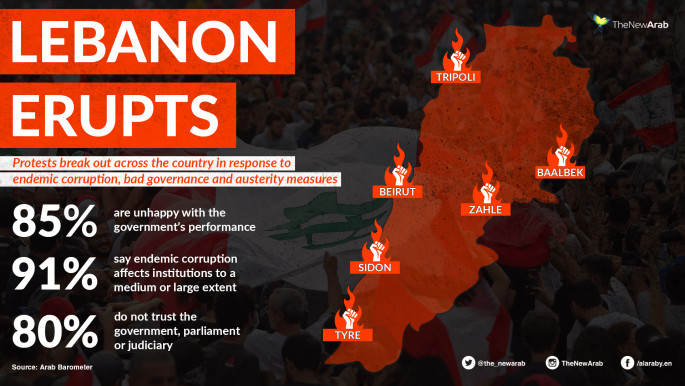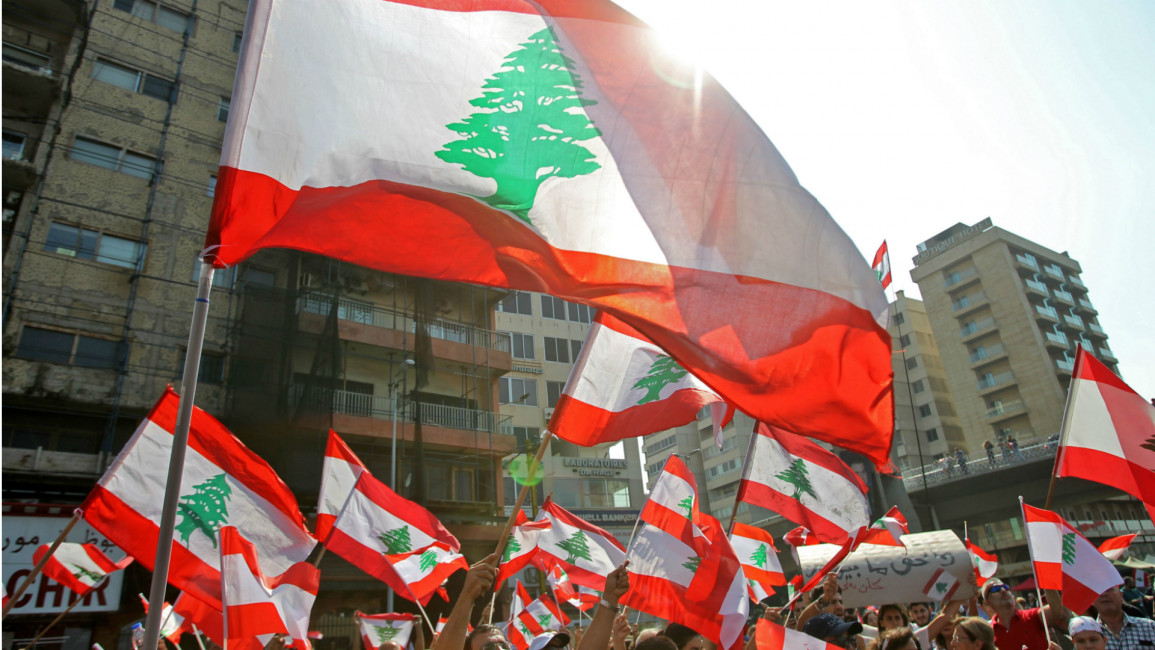Lebanese government announces reforms amid nationwide protests, general strike
Hariri told reporters after an emergency government meeting Monday that cabinet approved the 2020 budget with a deficit of 0.6 percent with no new taxes.
He said that the salaries of top officials, including legislators and members of parliament, will be cut in half as part of an economic reform package.
Hariri added that the country's central bank and the banking sector, which are flush with cash, will help in reducing the deficit by about 3.4 billion.
The cabinet also approved abolishing several state institutions, including the ministry of information.
The government will also give millions of dollars to families living in poverty as well as $160 million as housing loans. Hariri described the measures as a "financial coup".
 |
| Click to enlarge |
In response to Monday's announcement, many took to twitter to voice their distrust to any plan by the current government.
"Prime Minister Saad Hariri reading the economic blueprint agreed in cabinet. Around me, protestors are booing, raising their middle fingers... and chanting 'the people demand the fall of the regime' #Lebanon#Beirut," tweeted Lebanese journalist Kareem Chehayeb.
"The moment when Hariri's speech was broadcast, then everyone still chanted 'People want the fall of the regime' was one of the most emotional moments of my life," a twitter user said.
"Stay down. Don't go home. Keep fighting till the end. It's in our hands!" another twitter user said.
General strike
Protesters closed major roads around Lebanon and placed barriers on major intersections in Beirut as well as other cities and towns marking the fifth day of protests.
A nationwide strike took place on Monday, which saw schools, banks and businesses closed.
Hundreds of thousands of people have flooded the streets, furious at a political class they accuse of pushing the economy to the point of collapse.
They've called on the 30-member cabinet to resign and be replaced by a smaller one made up of technocrats instead of members of political factions.
Follow us on Twitter: @The_NewArab



![Squad incumbent Summer Lee has won her district's Democratic primary. [Brooke Anderson/The New Arab]](/sites/default/files/styles/image_330x185/public/2024-04/413898031_1041031157158522_8195934720767720634_n%20%283%29.jpg?h=ff8c3fa3&itok=75Sx6fbL)